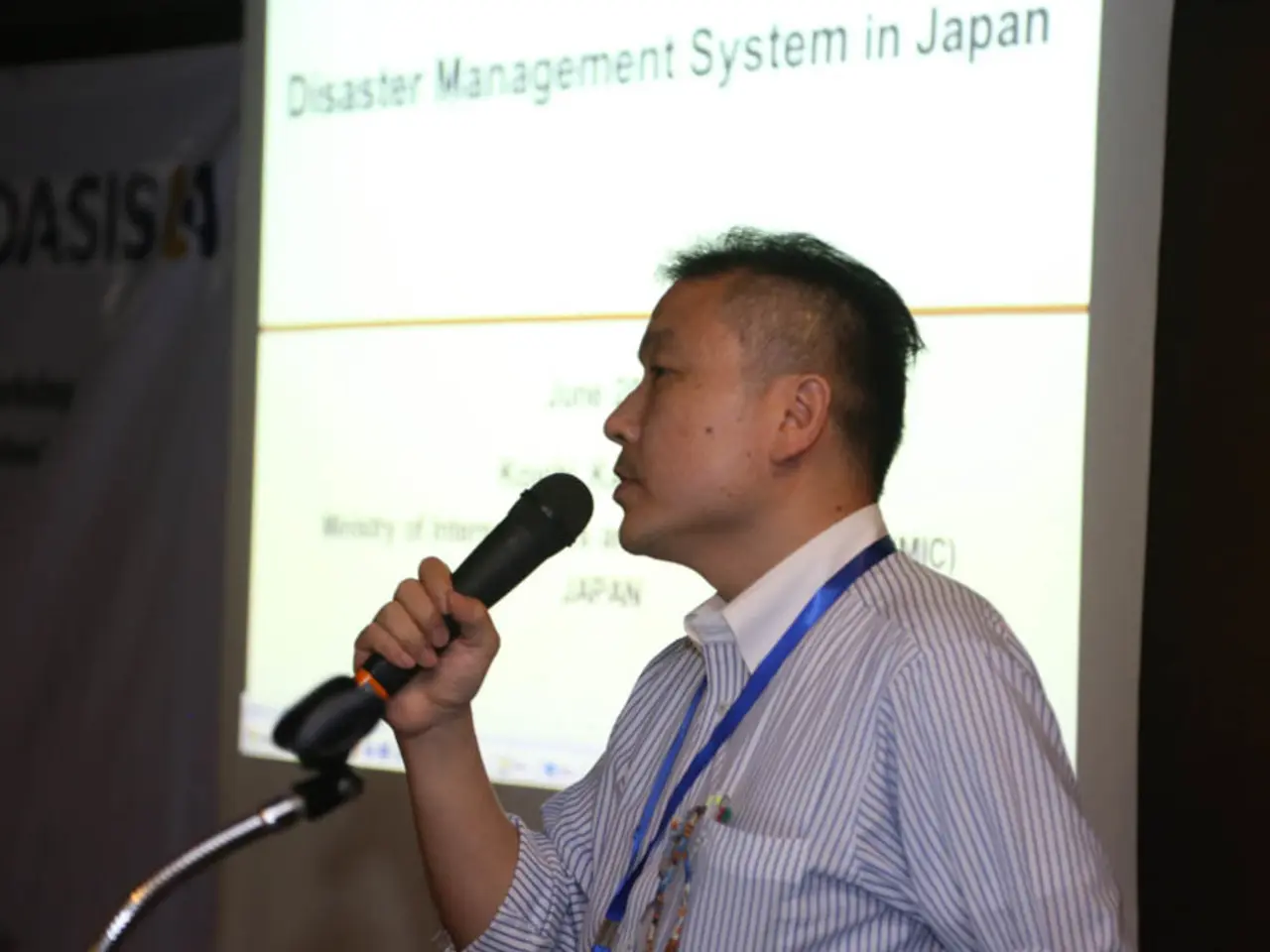Japanese Prime Minister Shigeru Ishiba faced a lack of public support following his push for a lighter, more optimistic approach to governance.
Shigeru Ishiba Steps Down as LDP Leader, Paving the Way for New Leadership
After a tumultuous tenure marked by electoral losses and internal party clashes, Shigeru Ishiba has announced his resignation as the leader of Japan's Liberal Democratic Party (LDP). Ishiba, a former agriculture minister and defence minister, will likely return to the back benches following his decision.
During his leadership, Ishiba faced three consecutive electoral defeats. These included losses in Tokyo's local elections in June, a lower house election in October, and an upper house election in July. The LDP, under Ishiba's leadership, reached one of its lowest ebbs since its founding in 1955.
Ishiba, 68, was seen as a figure popular with the public who could revive the LDP's standing when he was elevated to party leader. However, his tenure was marred by fraught tariff negotiations with the U.S. President Donald Trump's administration. The details of these negotiations were finalised just days before Ishiba stepped down.
As party leader, Ishiba largely kept his views on these issues to himself. Outside of politics, he has other passions, such as building plastic models of ships and planes and steering parliament's ramen appreciation society.
In the upper house election in July, voters handed Ishiba a resounding rebuke, with many backing opposition groups promising tax cuts and tighter controls on immigration. In the back benches, Ishiba was known as a dissenting voice on contentious issues such as nuclear energy, the U.S.-Japan security pact, falling birthrates, and separate surnames for married couples.
The departure of Ishiba opens the door for leadership rivals like Sanae Takaichi and Shinjiro Koizumi to revive their bids for the LDP's top job. Takaichi and Koizumi were among the frontrunners in the last leadership election. Another potential candidate is Toshimitsu Motegi, the former foreign minister who has already announced his candidacy for the party leadership.
Ishiba, a former banker who entered parliament in 1986 at the height of Japan's bubble economy, advocated for a more assertive Japan, less dependent on the U.S. for its defense. He also promoted the idea of Japan joining a NATO-like alliance in Asia.
Despite his electoral losses, Ishiba remains an LDP intellectual heavyweight and an expert on national security policy. LDP lawmakers were not prepared to forgive Ishiba for the electoral defeats he oversaw, leading to his resignation as party leader.
As Ishiba steps down, the LDP and its coalition partner Komeito have lost their majority in the upper house, adding to the political uncertainty in Japan. The race for the LDP leadership is expected to be a closely contested one, with the new leader likely to have a significant impact on Japan's political landscape.
Read also:
- ICE directed to enhance detention conditions following NYC immigrants' allegations of maltreatment
- Israeli finance minister issues warnings about potential annexation of West Bank territories
- United States faces rebuttal from South Africa over allegedly deceitful human rights report and assertions of land expropriation
- Accident at Rodalben Results in Injuries; Geoskop Area near Kusel Affected After Stormy Weather








